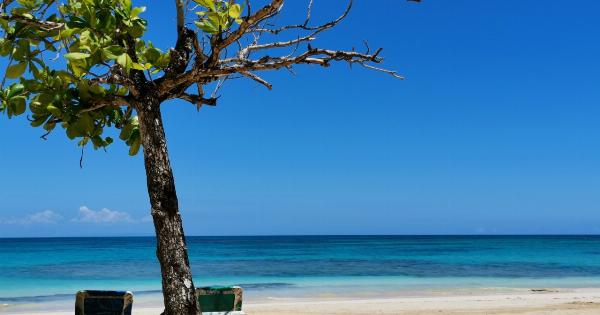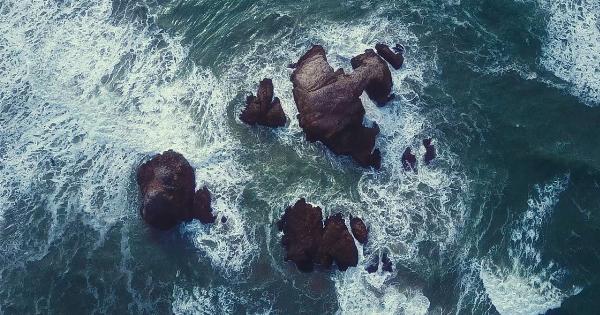Acquired Immunodeficiency Syndrome (AIDS) has been a global health concern for several decades now.
It is caused by the Human Immunodeficiency Virus (HIV), which weakens the immune system and makes individuals vulnerable to various infections and diseases. Despite significant progress in medical research, there is still no definitive cure for AIDS. However, scientists are exploring alternative remedies, and one such potential lies within the depths of our oceans.
Marine gifts, in the form of unique compounds and organisms, hold tremendous promise in combatting AIDS.
The Rich Biodiversity of the Oceans
The Earth’s oceans make up about 71% of the planet’s surface, and they are home to an incredible variety of life forms. From microscopic organisms to massive creatures, the marine ecosystem is a treasure trove of biodiversity.
This vast array of marine life provides endless possibilities for the discovery of new compounds and substances with medicinal properties.
Marine Microorganisms and Their Impact on AIDS Research
One area of particular interest for scientists is marine microorganisms. These tiny organisms, often invisible to the naked eye, play a crucial role in maintaining the health and equilibrium of marine ecosystems.
However, they also possess unique biochemical properties that can potentially be harnessed for medicinal purposes.
Researchers have discovered various marine microorganisms that produce compounds with anti-viral properties.
These compounds have demonstrated the ability to inhibit the replication of HIV, making them potential candidates for the development of new AIDS treatments. By studying these marine microorganisms and their bioactive compounds, scientists hope to unlock new avenues for combating the virus.
Coral Reefs as a Source of Hope
Coral reefs are not only breathtakingly beautiful ecosystems but also serve as potential reservoirs for medicinal compounds. These intricate, calcium carbonate structures are formed by the skeletal remains of coral polyps.
They are often referred to as the “rainforests of the sea” due to the immense biodiversity they harbor.
Within coral reefs, researchers have discovered a multitude of marine organisms producing compounds with remarkable properties.
These compounds not only exhibit anti-viral activity but also possess immunomodulatory effects, which can help bolster the immune system of individuals living with AIDS. The potential of coral reefs in AIDS research is truly remarkable and warrants further exploration.
Marine Algae and Its Anti-HIV Properties
Marine algae, commonly known as seaweed, is another marine gift with significant potential in combating AIDS. Scientists have identified numerous varieties of marine algae that produce compounds capable of inhibiting HIV replication.
These compounds act by blocking certain enzymes necessary for the virus’s life cycle, thus impeding its progression.
Furthermore, marine algae offers the advantage of being a renewable resource that can be easily cultivated. Unlike many terrestrial plants, marine algae thrive in seawater and require minimal resources.
Consequently, large-scale production of anti-HIV compounds from marine algae may be a viable solution to meet the growing demand for AIDS treatments.
The Hunt for Novel Compounds and Molecules
Exploring the potential of marine gifts in combating AIDS requires the identification of novel compounds and molecules. This involves extensive sampling and analysis of marine organisms, including sponges, soft corals, sea squirts, and more.
Ocean expeditions and marine biotechnology have proven instrumental in this search for new bioactive substances.
Marine Biotechnology: A Gateway to Discoveries
Marine biotechnology plays a pivotal role in unlocking the potential of marine gifts for AIDS research. It combines biology, chemistry, and genetics to harness the medicinal properties of marine organisms.
Through techniques such as bioprospecting, genetic modification, and bioengineering, scientists can manipulate marine gifts to develop new treatments and therapies for AIDS.
Marine bioengineering allows researchers to modify and enhance the natural compounds produced by marine organisms.
By isolating the genes responsible for the production of these compounds, scientists can create genetically modified organisms that produce higher yields of bioactive substances. This opens up new possibilities for the development of more potent and effective AIDS treatments.
Challenges and Future Prospects
Although marine gifts hold immense potential in combating AIDS, there are several challenges that researchers face in their quest for new treatments.
Accessing marine ecosystems, especially deep-sea environments, can be logistically and economically demanding. The complex structure and vastness of coral reefs also present difficulties in sample collection.
Furthermore, the identification and isolation of bioactive compounds from marine organisms require extensive laboratory work and testing.
Researchers need to ensure the safety, efficacy, and lack of toxicity of these compounds before they can be considered for human trials. These processes can be time-consuming and resource-intensive.
Despite these hurdles, the potential of marine gifts in combatting AIDS cannot be overstated. The remarkable biodiversity and unique biochemical properties of marine organisms provide a vast resource for the development of new treatments.
With ongoing research and advancements in marine biotechnology, we can hope to find novel therapies that provide a lasting solution to the global AIDS epidemic.






























